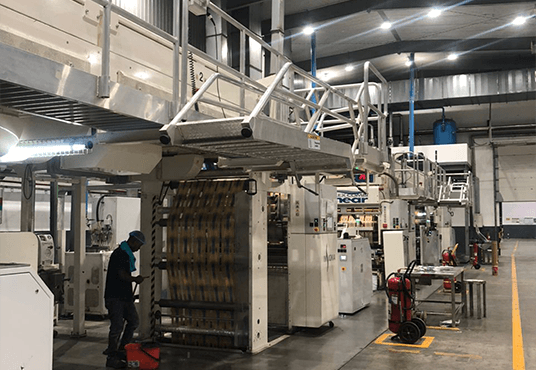Nigeria’s food packaging industry is growing at an impressive rate, but at what cost to the environment? As consumers become increasingly aware of the impact of plastics and other non-biodegradable materials on our planet, it’s essential for companies to adopt sustainable practices. In this blog post, we’ll explore how far Nigerian food packaging companies have come in their journey towards sustainability and highlight some innovative initiatives being undertaken by leading players in the industry. Join us as we dive into this critical topic that affects not just Nigeria but also the world at large!
Introduction to Sustainable Practices in Nigerian Food Packaging Companies
Nigerian food packaging companies are increasingly incorporating sustainable practices into their operations. This is driven by a number of factors, including consumer demand for more environmentally-friendly products and stricter regulation around the use of certain materials.
Sustainable practices in Nigerian food packaging include using recycled materials, investing in energy-efficient technologies, and reducing waste. Some companies have also started using biodegradable packaging materials that can break down without harming the environment.
So far, Nigerian food packaging companies have made good progress in adopting sustainable practices. However, there is still room for improvement, particularly around reducing waste and increasing the use of recycled materials. With continued effort, Nigeria can become a leader in sustainable food packaging.
History of the Industry
In Nigeria, food packaging has a long and varied history. Traditional methods of food packaging as just packaging it in leaves, wraps and like a decade ago polythene bags alone without any proper biodegradable thought has led to more advancement in proper packaging of edible and non-edible items.
Nigeria is home to many food packaging companies that are committed to sustainable practices. Of which, this company Insignia, uses recyclable materials to create their products, which helps to reduce the amount of waste that ends up in landfills. In addition, these companies use less energy and water to produce their products, which further reduces their environmental impact.
Despite the progress that has been made by Nigerian food packaging companies, there is still room for improvement. For example, some companies continue to use non-recycled materials in their products. In addition, many companies still use harmful chemicals in their packaging processes. As such, it is important for consumers to be aware of the sustainable practices of Insignia in packaging for the market so that they can make informed choices about the products they purchase.
Private Sector Initiatives for Sustainable Packaging Production
The private sector has taken some important steps in recent years to increase sustainable packaging production in Nigeria. Some companies have switched to using more recyclable and biodegradable materials, while others have invested in new technologies to reduce waste and increase efficiency.
There is still a long way to go, however, and the private sector will need to continue to innovate and invest in sustainable packaging solutions if Nigeria is to meet its ambitious environmental targets.
Challenges Facing the Industry
The packaging industry in Nigeria is under immense pressure to adopt sustainable practices. This is because the country faces a number of environmental challenges, such as air pollution, water scarcity, and waste management.
- Air pollution is a major problem in Nigeria. The country has some of the highest levels of air pollution in the world. This is due to the burning of fossil fuels, such as coal and oil. The emissions from these activities contribute to climate change and cause respiratory problems for people living in close proximity to them.
- Water scarcity is another big challenge facing Nigeria. The country has a growing population but lacks access to clean water. This is because much of the country’s water supply is polluted with sewage and industrial waste. As a result, many people are forced to drink contaminated water, which can lead to disease.
- Waste management is also a major problem in Nigeria. The country produces a large amount of solid waste each year but has limited infrastructure for disposing of it safely. This often leads to open dump sites where rubbish is left to rot and release harmful toxins into the environment.
How Insignia is curbing these challenges
It is no secret that the world is becoming more and more conscious of the need for sustainable practices. This is especially true in the food packaging industry, where the amount of waste produced is staggering. In Nigeria, we have seen a few companies begin to adopt sustainable practices, but there is still a long way to go. Here are some predictions for what we can expect to see in the next few years:
1. We as a company already adopted sustainable packaging materials and designs.
2. Recycling programs has already become common to us, both within companies and at municipal levels.
3. Composting initiatives has gained popularity as people become more aware of the benefits of reducing food waste.
4. There is an increase in public awareness campaigns about the importance of sustainable food packaging practices.
Conclusion
In conclusion, the adoption of sustainable practices in Insignia has come a long way but there is still much to be done. We continue to prioritize sustainability initiatives while also investing more resources into research and development on new materials that are both affordable and environmentally friendly. With continued hard work, Insignia will lead the world in setting an example for how businesses can make significant strides towards achieving a more sustainable future.


